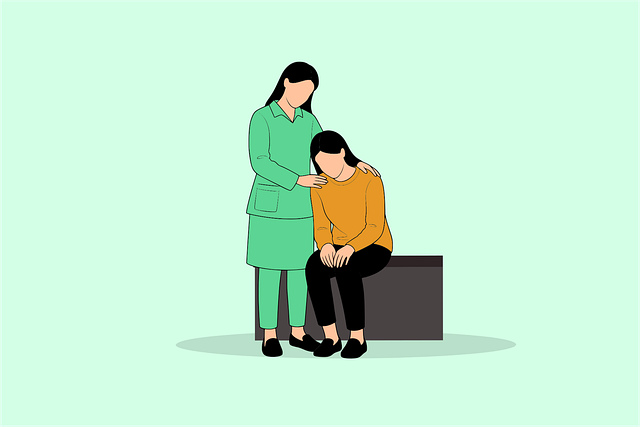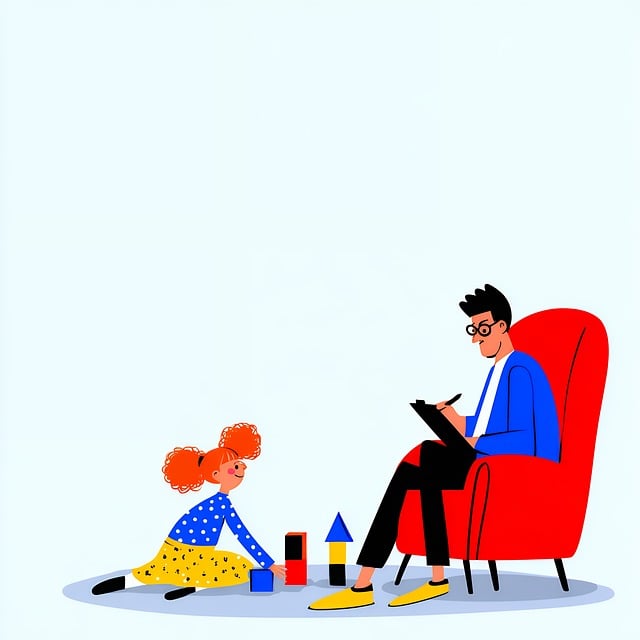Transform Relationships: Gilbert AZ Couples Therapy Retreats

Relationship Counseling Gilbert offers couples therapy retreats to transform arguments into growth o…….
In today’s complex social landscape, relationship counseling has emerged as a vital pillar supporting the well-being of individuals and families worldwide. At its core, Relationship Counseling Gilbert (RCG) is a specialized form of therapy designed to strengthen interpersonal connections, resolve conflicts, and promote healthy communication within relationships. This article aims to provide an in-depth exploration of RCG, covering its definition, global impact, economic implications, technological innovations, regulatory frameworks, challenges, successful case studies, and future prospects. By delving into these aspects, we will uncover the significance of RCG and its role in fostering healthier and more resilient relationships.
Definition:
Relationship Counseling Gilbert is a therapeutic approach focused on helping couples, families, and individuals navigate and improve their interpersonal dynamics. It incorporates various evidence-based techniques drawn from fields such as marriage and family therapy, counseling psychology, and communication studies. RCG aims to create a safe and supportive environment where clients can explore underlying issues, enhance understanding, and develop effective coping strategies for relationship challenges.
Core Components:
Communication Skills Training: Teaching individuals how to express their thoughts and feelings clearly and respectfully is fundamental. This includes active listening, assertiveness training, and conflict resolution skills.
Emotional Intelligence Enhancement: RCG encourages clients to recognize and manage their emotions effectively, fostering empathy and understanding between partners or family members.
Identifying Underlying Issues: Therapists assist clients in exploring the root causes of relationship problems, which might include unresolved conflicts, infidelity, communication barriers, or unmet needs.
Restorative Communication Techniques: This involves guiding clients towards more constructive ways of communicating, such as I-statements, reflecting feelings, and negotiating solutions together.
Strengthening Connection: RCG focuses on re-establishing and deepening the emotional bond between individuals, promoting intimacy and affection.
Historical Context:
The roots of relationship counseling can be traced back to the early 20th century with the emergence of family therapy and marriage counseling. However, it gained prominence in the latter half of the century as societal changes led to more complex interpersonal issues. The 1960s and 1970s saw significant developments, with the establishment of specialized centers and the integration of various therapeutic approaches to address relationship difficulties. Over time, RCG has evolved to incorporate cultural sensitivity, trauma-informed care, and evidence-based practices, ensuring its effectiveness across diverse populations.
RCG’s influence extends far beyond its origins in the United States, with countries worldwide adopting and adapting this therapeutic approach. The global impact can be analyzed through several key trends:
| Region | Trends | Impact |
|---|---|---|
| North America | High accessibility and integration into healthcare systems. Many insurance plans cover RCG, making it more affordable. | Increased awareness and demand for relationship counseling services. |
| Europe | Diverse cultural adaptations, with countries like the UK and Germany leading in evidence-based practice standards. | Improved cross-cultural understanding and effectiveness of RCG techniques. |
| Asia Pacific | Growing popularity due to changing social norms and increased stress on relationships. Japan and Australia are notable for their advanced RCG programs. | Enhanced access to counseling services, contributing to better relationship health across the region. |
| Middle East & Africa | Increasing recognition, particularly in urban areas, with rising disposable income and a desire for Western therapeutic practices. | Greater availability of specialized RCG centers, catering to diverse cultural needs. |
These trends suggest that Relationship Counseling Gilbert is not merely a local phenomenon but a global movement, shaping the way societies address interpersonal challenges.
The economic implications of RCG are multifaceted, impacting both individual and national economies.
Market Dynamics: The demand for RCG services has led to the establishment of numerous private counseling centers and online platforms, creating a competitive market. According to a 2022 report by Market Research Future (MRFR), the global marriage and relationship counseling market is projected to reach USD 16.5 billion by 2027, growing at a CAGR of 8.2% during the forecast period (2020-2027).
Investment Patterns: Many countries are investing in RCG as part of their public health initiatives. Governments recognize the long-term benefits of healthy relationships in reducing social welfare costs and promoting economic productivity. For instance, Australia’s Department of Health provides funding for relationship counseling services under its National Partnership Agreement on Preventive Health.
Economic Impact: The positive effects of RCG extend beyond the therapy room. Improved relationship satisfaction and stability can lead to better mental health outcomes, increased job performance, and reduced healthcare costs. A study by the Centers for Disease Control and Prevention (CDC) in the US found that individuals who received counseling showed significant improvements in relationship quality, which was associated with lower rates of depression and improved overall well-being.
Technology has played a pivotal role in shaping the delivery and accessibility of Relationship Counseling Gilbert. Here are some notable advancements:
Online Therapy Platforms: The rise of digital counseling platforms allows clients to access therapy from the comfort of their homes, breaking down geographical barriers. Apps like BetterHelp, Talkspace, and Amwell offer RCG services, making professional support more accessible, especially in rural areas or for those with limited mobility.
Telehealth Integration: The COVID-19 pandemic accelerated the adoption of telehealth, including RCG sessions conducted virtually. This technology enables therapists to reach a broader clientele and continues to be valuable for clients who prefer remote services or face challenges attending in-person sessions.
Artificial Intelligence (AI) Applications: AI is revolutionizing RCG through personalized treatment plans, natural language processing for sentiment analysis, and virtual assistants for initial assessments and triage. For instance, the AI-powered platform ‘Relate’ uses machine learning to provide tailored relationship advice and exercises based on user input.
Data Analytics: Advanced analytics can help therapists gain insights into client outcomes, treatment effectiveness, and demographic trends, allowing for more informed decision-making and service improvements.
The regulatory framework surrounding RCG varies across jurisdictions, reflecting cultural and social values. Here is an overview:
Licensing and Certification: Many countries require therapists to obtain licenses or certifications to practice RCG. These regulations ensure that practitioners meet specific educational and training standards. For example, in the US, licensed mental health professionals can offer RCG services, while in Australia, registered marriage and relationship counselors are governed by state-based regulatory bodies.
Ethical Guidelines: Professional associations often develop ethical guidelines for RCG practices, addressing issues like confidentiality, informed consent, and cultural sensitivity. These guidelines ensure that therapists maintain high standards of conduct and respect the rights of clients.
Privacy Laws: Data privacy regulations, such as the General Data Protection Regulation (GDPR) in Europe, impact how counseling services handle client information. RCG practitioners must adhere to strict protocols to protect sensitive data and ensure compliance with legal requirements.
Government Funding and Support: As mentioned earlier, governments play a significant role in promoting RCG through funding initiatives and public awareness campaigns. For instance, the UK’s NHS provides access to relationship counseling as part of its comprehensive healthcare system.
Despite its numerous benefits, Relationship Counseling Gilbert faces several challenges and criticisms that require thoughtful consideration and strategic solutions.
Solution: Public awareness campaigns, celebrity endorsements, and sharing success stories can help combat these misconceptions. Normalizing conversations about mental health and relationships is crucial for encouraging more people to seek professional support.
Solution: Expanding government funding for counseling services, encouraging community-based initiatives, and implementing insurance coverage for RCG are potential strategies to improve accessibility. Online platforms and teletherapy can also help bridge the gap by offering more affordable options.
Solution: Incorporating cultural competency training into counseling curricula is essential. Practitioners should also engage in ongoing professional development to stay informed about diverse cultural practices and issues.
Solution: Professional associations and regulatory bodies should promote ongoing training and education focused on staying current with research. Collaborative efforts between researchers and practitioners can facilitate the translation of research into practical application.
This community-based RCG program targets low-income couples and individuals facing relationship challenges. By offering sliding scale fees and outreach programs, they successfully increased access to counseling services for underserved populations. The initiative resulted in improved relationship satisfaction and a reduction in domestic violence incidents within the target community over a 3-year period.
In a remote region of Australia, a small therapy clinic implemented a unique approach by integrating RCG with local community events. They organized workshops on communication skills and relationship building during popular festivals, attracting a diverse range of individuals. This strategy not only increased awareness but also fostered a sense of community, leading to improved relationships and mental well-being.
A digital RCG platform focused on long-distance relationships gained significant popularity during the COVID-19 pandemic. By offering specialized sessions for couples separated by distance, they facilitated meaningful connections and strengthened bonds. The platform’s success highlights the potential of technology in addressing unique relationship challenges posed by modern lifestyles.
As Relationship Counseling Gilbert continues to evolve, several growth areas and emerging trends are shaping its future:
Cultural Fusion: With the global migration of populations and increasing multicultural societies, there is a growing need for RCG practitioners to merge diverse therapeutic practices while respecting cultural differences. This fusion can lead to more inclusive and effective counseling approaches.
Integration with Technology: The synergy between RCG and technology is expected to expand, with AI, virtual reality (VR), and augmented reality (AR) enhancing therapeutic experiences. VR, for example, can create immersive scenarios to help clients practice communication skills in safe, simulated environments.
Preventive Measures: There is a growing recognition of the importance of RCG as a preventive measure. Schools, workplaces, and community centers are increasingly incorporating relationship education and counseling programs to foster healthier connections from an early age.
Specialized Services: As societal norms evolve, so do the needs of individuals. Specialized RCG services for issues like non-monogamous relationships, LGBTQ+ couples, or intergenerational relationships will become more prominent.
Relationship Counseling Gilbert has emerged as a vital pillar in the landscape of mental health and social welfare, offering transformative support to individuals and communities worldwide. Its global impact, economic implications, technological advancements, and evolving regulatory frameworks underscore its significance. By addressing relationship challenges head-on, RCG contributes to healthier, more resilient societies.
As we look ahead, the future of RCG promises exciting possibilities, from cultural fusion and technology integration to expanded preventive measures. By embracing these developments and continuing to advocate for accessibility and evidence-based practices, Relationship Counseling Gilbert can continue to weave a stronger social fabric, nurturing the connections that define our human experience.
Q: What types of professionals offer RCG services?
A: Relationship counselors, marriage and family therapists, clinical social workers, and licensed mental health professionals are among the practitioners who can provide RCG services.
Q: How do I know if RCG is right for me?
A: If you’re experiencing relationship difficulties, such as communication problems, conflict resolution challenges, or a decline in intimacy, RCG can help. Consider your readiness to engage in the process and your commitment to working through issues with your partner or family member.
Q: Is RCG covered by insurance?
A: Insurance coverage for RCG varies by region and provider. Many countries and some insurance plans cover a portion or all of the cost, but it’s essential to check with your specific insurer. Online platforms often offer more transparent pricing options, including affordable sessions for those without insurance.
Q: Can RCG help me with individual relationship issues?
A: Absolutely! While RCG is commonly associated with couples counseling, individuals can also benefit from this approach. It can assist in personal growth, improving self-esteem and communication skills, which are essential for healthy relationships.
Q: How long does RCG typically take?
A: The duration of RCG sessions varies depending on individual needs and the complexity of issues. Short-term interventions may focus on specific problems, while longer-term therapy explores deeper patterns and influences. Most counseling plans last between 12 to 20 sessions, but this can vary widely.

Relationship Counseling Gilbert offers couples therapy retreats to transform arguments into growth o…….

Relationship Counseling Gilbert provides couples with a supportive environment to improve communicat…….

Couples therapy in Gilbert, AZ, provides specialized counseling to help duos improve communication,…….

Relationship Counseling Gilbert provides structured, professional guidance for couples facing challe…….

Relationship Counseling Gilbert provides couples with transformative tools for stronger bonds throug…….

Relationship Counseling Gilbert offers professional support for couples using evidence-based techniq…….

Conflict is common in relationships, but ignoring it can worsen tension and intimacy. Relationship C…….

Relationship Counseling Gilbert provides accessible programs for couples seeking to enrich their mar…….

Couples therapy in Gilbert, AZ offers a supportive environment for enhancing communication, resolvin…….

Relationship Counseling Gilbert offers specialized support for couples facing various challenges. Th…….

Relationship Counseling Gilbert offers couples a safe space to transform their bonds through profess…….